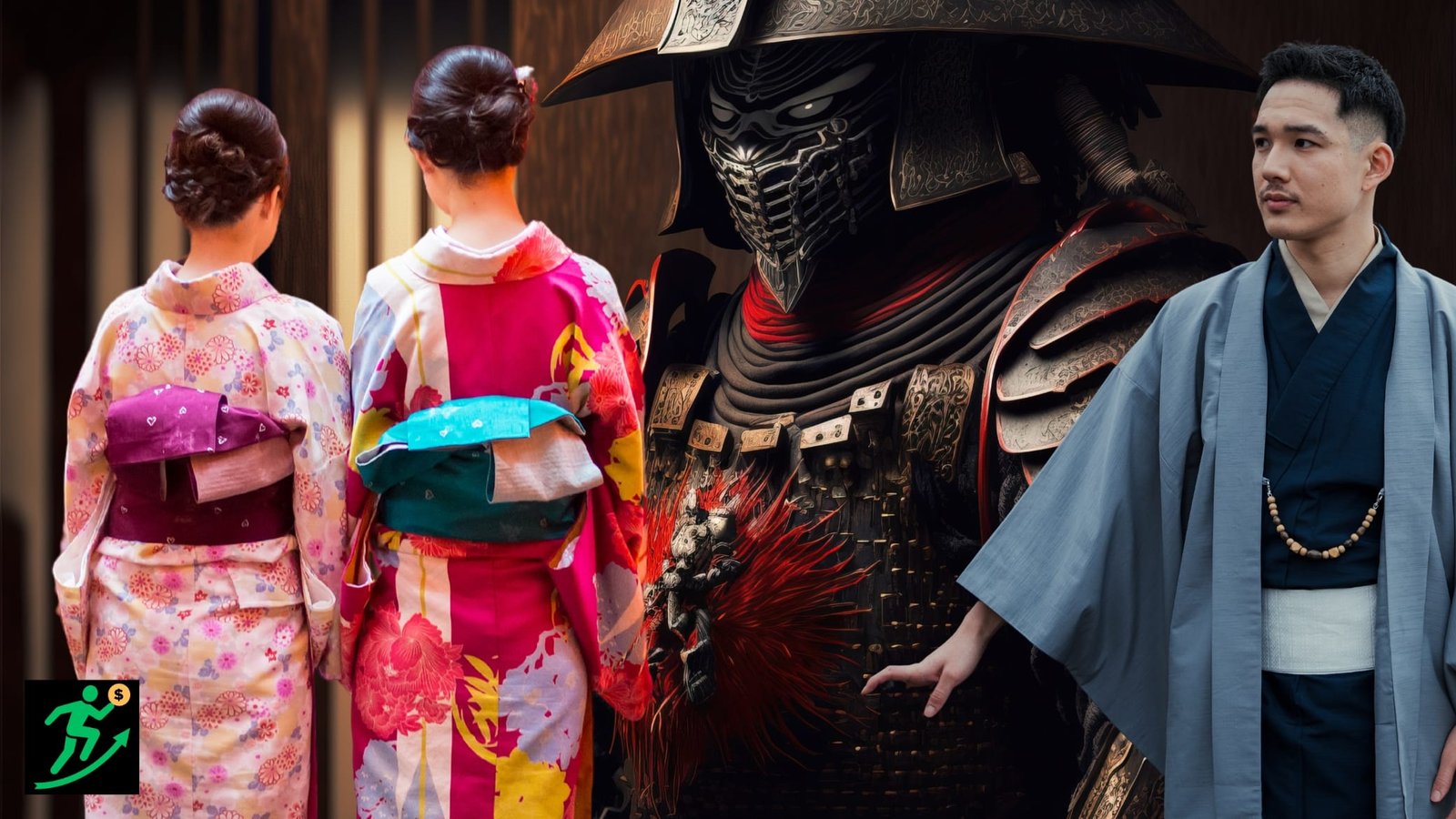SPECIAL REPORT SACRED WEALTH
Top 10 Money Insights from 7 World Religions You Can’t Afford to Ignore
Intro | Christianity | Islam | Hinduism | Buddha | Shinto | Sikhism | Judaism | Conclusion
 Shinto is a Japanese religion dating from the early 8th century and incorporating the worship of ancestors and nature spirits and a belief in sacred power ( kami ) in both animate and inanimate things. It was the state religion of Japan until 1945
Shinto is a Japanese religion dating from the early 8th century and incorporating the worship of ancestors and nature spirits and a belief in sacred power ( kami ) in both animate and inanimate things. It was the state religion of Japan until 1945
PART 7: Here are the Top 10 Practical insights from the Sacred Texts of Shinto that will transform your relationship with money
Shinto (Japanese: 神道, romanized: Shintō) is a religion originating in Japan. Classified as an East Asian religion by scholars of religion, its practitioners often regard it as Japan’s indigenous religion and as a nature religion.
Scholars sometimes call its practitioners Shintoists, although adherents rarely use that term themselves. There is no central authority in control of Shinto, with much diversity of belief and practice evident among practitioners.
Shinto, Japan’s indigenous religion, is deeply rooted in reverence for nature, respect for the divine, and harmony with the universe.
While its spiritual practices are often centered on rituals, purification, and offerings, there are lessons within Shinto’s sacred texts that can provide profound wisdom for transforming your relationship with money and achieving financial freedom.
Drawing from ancient works such as the Kojiki, Nihon-gi, Kogoshūi, and Engi Shiki, here are ten sacred principles that can guide you toward financial well-being.
1. Respect for the Divine Order
The Kojiki (Record of Ancient Matters) emphasizes the importance of recognizing the divine order in the world. This respect for the sacred is a key element of Shinto, where everything has a spirit (kami).
Translating this into financial terms, financial freedom comes when you align your actions with a higher purpose and respect the flow of energy in your life. Whether you are spending, saving, or investing, remember that financial decisions should be made with integrity and honor.
2. Harmony and Balance
Shinto teaches the importance of balance with nature and the world around you. In the Nihon-gi (Chronicles of Japan), this harmony is reflected in the stories of gods and humans coexisting in a balanced world.
When it comes to your finances, this principle suggests that true wealth isn’t just about accumulating money, but about creating balance in your life—between work, rest, spending, saving, and investing. Too much focus on one area can lead to imbalance and financial stress.
3. The Spirit of Giving
The Kogoshūi (Collection of Old Laws) emphasizes offerings to the kami as a means of expressing gratitude and ensuring continued blessings. In financial terms, the practice of giving, whether through charitable donations or support for loved ones, creates a flow of energy that invites more prosperity into your life. By giving without attachment, you open yourself to the universe’s abundance.
4. Purification and Clearing Financial Blockages
Purification, or misogi, is a cornerstone of Shinto rituals. The Engi Shiki (The Book of Rituals) includes various purification rituals that cleanse impurities and restore balance. When approaching your finances, purification can mean clearing any negative beliefs about money, debts, or scarcity.
Taking the time to declutter your financial life—whether by addressing debts, revising poor habits, or rethinking money goals—helps clear the path for wealth and abundance to flow freely.
5. Gratitude for What You Have
In Shinto, expressing gratitude for the present moment is fundamental. The Nihon-gi tells stories of offerings made to the kami in gratitude for their blessings. This practice can be applied to your financial life by regularly expressing gratitude for what you already have. When you appreciate what you have, you shift your mindset from one of lack to one of abundance, opening yourself up to receiving more.
6. The Power of Rituals and Routines
Shinto rituals are performed regularly to honor the kami, maintain spiritual cleanliness, and cultivate a deeper connection with the divine. Similarly, financial freedom is achieved by cultivating consistent, positive financial habits. Whether it’s budgeting, saving a portion of your income, or investing wisely, the discipline of regular financial rituals can compound over time to create long-term wealth.
7. Trust in the Flow of Life
In the Kojiki, there are many tales of divine intervention that guide people toward their destinies. Shinto teaches that the universe has a natural flow, and when you trust it, things tend to work out. This can be applied to your financial journey by trusting in the process, even when things are uncertain. Trusting that opportunities will arise and that your efforts will pay off can reduce stress and allow you to take the necessary actions with faith.
8. The Law of Reciprocity
The concept of reciprocity in Shinto reflects the belief that all actions have consequences, and that balance must be maintained. The Kogoshūi reminds us of the importance of mutual respect and reciprocity between people and the divine.
In practical financial terms, the law of reciprocity suggests that by investing in others—whether through acts of kindness, mentorship, or support—you also invest in your own financial well-being. The more you give and contribute, the more likely you are to receive in return.
9. Patience and Long-Term Vision
Shinto’s sacred texts emphasize the patience required to cultivate a meaningful spiritual life. In the Engi Shiki, rituals are carefully planned, and success is often achieved after long periods of dedication. Likewise, financial freedom does not happen overnight. Building wealth requires patience, consistent effort, and a long-term vision. Rather than seeking quick fixes, focus on sustainable growth and making financial decisions that benefit your future self.
10. Connecting with Your Ancestors for Wisdom
In Shinto, ancestor worship is a deeply ingrained practice. The Nihon-gi underscores the importance of honoring your forebears, as they provide guidance and wisdom.
Similarly, when faced with financial decisions, take time to reflect on the lessons passed down from family, mentors, or historical figures. The wisdom of those who came before you can often provide insights into better managing your money and avoiding past mistakes.
 Purchase on Amazon.com
Purchase on Amazon.com
Conclusion
The sacred texts of Shinto are filled with wisdom that transcends the spiritual realm, offering practical insights into every aspect of life—including finance.
By embracing principles such as balance, gratitude, reciprocity, and patience, you can transform your relationship with money and move closer to achieving financial freedom.
Let these sacred teachings inspire you to take intentional, thoughtful actions with your finances, and watch as the divine flow of abundance manifests in your life.
#Shinto #FinancialFreedom #Kojiki #Nihongi #Kogoshuui #EngiShiki #MoneyManagement #WealthBuilding #Gratitude #AbundanceMindset #FinancialHarmony #GivingBack #RitualsForSuccess #PatiencePays #SacredTexts #FinancialWisdom #MoneyTips #BalanceInLife #PersonalFinance #FinancialGoals
 Read The Complete Special Report Here
Read The Complete Special Report Here
 The Punk Rock Prophet Joe Strummer from THE CLASH once said, “Without people, you’re nothing.” This profound insight could just as easily reflect the true value of money when considered in the context of humanity.
The Punk Rock Prophet Joe Strummer from THE CLASH once said, “Without people, you’re nothing.” This profound insight could just as easily reflect the true value of money when considered in the context of humanity.
Charles Bivona Jr., aka Coach JP Money, is a business strategist, financial coach, and founder of CoachJPmoney.com. A lifelong entrepreneur, he launched his first real estate deal at 17 and went debt-free by 1998. Since then, he has built national media brands, advised small businesses, and helped clients grow online using smart strategy, digital tools, and creative grit.
An expat living in Baja, Mexico, Charles also writes and produces music as Johnny Punish and lives off-grid at Hacienda Eco-Domes, a sustainable retreat he built with his wife. Through providing small business services, coaching, writing, and podcasting, he’s on a mission to help others win their future—on their terms.
Read his full bio at PunishStudios.com >>>
Post Views: 132